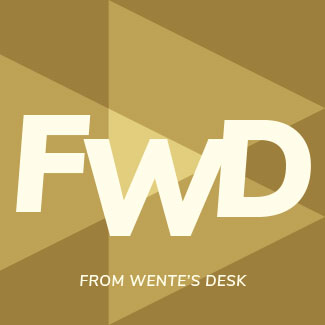How we frame the framework

The inventor of the telephone, Alexander Graham Bell, once said, “great discoveries and improvements invariably involve the cooperation of many minds.” As a scientist, I’ve seen this assertion play out many times — and in real time — both in my own career and those of my colleagues in the academy. I’m also seeing it play out this semester, as we craft a new university strategic framework for Wake Forest.
In August, we officially launched the strategic framework process. I am truly impressed by the radical collaboration across and among the leaders and groups guiding the steps to build our framework. In this first phase, numerous conversations are generating ideas about the university’s priorities from now to when we begin our third century in 2034.
So far, we have hosted 22 listening sessions and forums for faculty, staff, and students. More than 1,000 individuals participated and provided their input and feedback. We also engaged our extended campus community of alumni and friends via sessions with our Councils and Boards of Visitors to ensure their voices are incorporated into our work. This semester, my Wednesdays with Wente lunches with faculty and staff and the Gold & Black Chats (which I co-host for students with Vice President Kidd Brown) created further space for dialogue and discussion about our visions for the future. Finally, an online survey has also been used to collect individual feedback directly.
A remarkably consistent refrain echoes through these conversations — that Wake Forest community members have a deep sense of connection to and caring for each other, and a shared commitment to thriving and serving. This sense of connection and commitment is motivated by a strong sense of shared purpose; of pride in the remarkable accomplishments of our students, faculty, staff, and alumni; and the focus that our motto — pro humanitate — provides, as we live out our mission.
We heard staff speak to the power they see in the teacher-scholar ideal, and the incredible impact that mentorship has on students. We heard students provide powerful, personal examples (unprompted!) of how a liberal arts curriculum has directly benefited them. We heard faculty speak about the critical role that staff play in supporting the learning and wellbeing of our students. And we heard alumni speak with pride and passion not simply for their alma mater, but also for how our teaching and scholarship are catalysts for good in society.
These phase one conversations have also yielded a common set of questions. How do we maintain what makes Wake Forest distinct as we move into our third century given the changing world around us? How do we ensure our campus community further embraces inclusive excellence? In what ways can Wake Forest catalyze new knowledge and new solutions to the problems that face our local and global communities? How will future generations of students be best prepared for their careers after Wake Forest?
When I was in the laboratory as a cell biologist, I always enjoyed collecting data and asking questions. And in a similar way, we are assembling an incredible trove of information across the breadth and depth of our Wake Forest community. Next comes the hard part! How do we make sense of this information, and how do we build upon it? As we complete our fall listening sessions, members of the Core Planning Team are actively engaged in giving input into the themes that will anchor our framework. The next step is to build out our aspirational goals in each thematic area. From there, working groups will focus on drafting initiatives that will support our achieving these goals and our emerging University strategy.
With this in mind, I hope you will join me on November 17 for my annual Presidential Address, where I will announce our themes and discuss more about the next phases of our strategic framework process. Details will follow next week.
What will the future hold for Wake Forest? Perhaps you’re reading this blog post on a cell phone. Alexander Graham Bell might not have envisioned such, but he quickly patented his invention in 1876 because he knew he had discovered something special and revolutionary. As we look to 2034, we cannot be certain of what the future holds. But we do know that “through the cooperation of many minds,” we will be ready. Ready to lead. Ready to thrive. And ready to meet the calling of our motto in a new century by using our knowledge, talents and compassion to be catalysts for good in society.
Categories: From Wente's Desk
